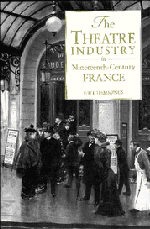Book contents
- Frontmatter
- Contents
- Chronology
- Introduction
- PART I THE AUDIENCES
- PART II THE ACTING PROFESSION
- 9 A pariah profession
- 10 Social origins
- 11 Training for the stage
- 12 Salaries and contracts
- 13 The difficult life of the actress
- 14 Acting standards
- PART III THE PROFESSION OF PLAYWRIGHT
- Notes
- Bibliography
- Guide to further reading
- Index
10 - Social origins
Published online by Cambridge University Press: 07 December 2009
- Frontmatter
- Contents
- Chronology
- Introduction
- PART I THE AUDIENCES
- PART II THE ACTING PROFESSION
- 9 A pariah profession
- 10 Social origins
- 11 Training for the stage
- 12 Salaries and contracts
- 13 The difficult life of the actress
- 14 Acting standards
- PART III THE PROFESSION OF PLAYWRIGHT
- Notes
- Bibliography
- Guide to further reading
- Index
Summary
In spite of the social ostracism to which they knew they would be condemned, there never seems to have been any shortage of recruits to the acting profession. Even to make an approximate guess at the number of young men and women who ventured on to the stage in the course of the century would be hazardous; the most one can say is that it must have run into thousands, perhaps tens of thousands if one includes the provincial companies, the bands of strolling players, those who staffed suburban houses as well as providing the backbone for the numerous theatres of central Paris. Far more of them left no trace of their passage on the stage than ever won even a temporary celebrity; in many cases their theatrical experience would have been of the briefest, to be followed by a swift descent into unemployment, temporary or permanent, and finally recourse to some obscure livelihood, as lack of talent or lack of perseverance dictated. In this legion of unknowns it needed an altogether exceptional fluke for even their name to survive: the chance, for instance, of having inspired the muse of some great poet, as happened to Marie Daubrun, briefly in demand at the Porte-Saint-Martin and the Gaîté in the late 1840s and 1850s when her childlike features allied to more mature charms aroused Baudelaire's mystic fervour and prompted some of his most moving love poetry. But she was a mediocre and unreliable actress, as even her lover admitted, and after 1860 she disappeared from the public gaze; the record thereafter is blank apart from the date of her death, 1901.
- Type
- Chapter
- Information
- The Theatre Industry in Nineteenth-Century France , pp. 149 - 171Publisher: Cambridge University PressPrint publication year: 1993



